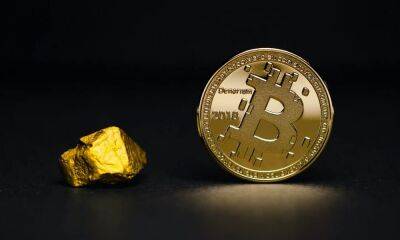Terra lawsuit a ‘roadmap’ to attack other stablecoins: Delphi Labs
The United States Securities and Exchange Commission’s (SEC's) lawsuit against Terraform Labs and its co-founder Do Kwon could be seen as an SEC “roadmap” to taking down other stablecoins, according to a lawyer.
Gabriel Shapiro, general counsel at investment firm Delphi Labs, explained to his 33,800 Twitter followers on Feb. 16 that the SEC’s arguments in its complaint against Kwon and Terraform were “more thorough than usual.”
whew lad, lots to digest in the SEC lawsuit vs Do Kwon and Terraform Labs right off the bat, a very interesting fact is that the SEC is being more thorough than usual--specifically running through the Howey test for various assets (UST, LUNA, and wLUNA) and also alleging that… https://t.co/1JsBQijMnw pic.twitter.com/qHuL6mKpeo
Shapiro’s analysis follows the SEC’s Feb. 16 lawsuit against Kwon and Terraform alleging they “orchestrat[ed] a multi-billion dollar crypto asset securities fraud involving an algorithmic stablecoin and other crypto asset securities.”
Shapiro suggested the case could serve as a “roadmap” for how the regulator may sue other stablecoin issuers in the future. He acknowledged the SEC made the case that Terra’s algorithmic stablecoin, TerraClassicUSD (USTC), constitutes a security:
He pointed out the SEC applied the four prongs of the Howey Test to argue that USTC, Terra Luna Classic (LUNC) — renamed from Terra (LUNA) — and Wrapped LUNA (wLUNA) all constituted securities under U.S. securities laws.
The SEC also argued that Terraform Labs breached U.S. securities laws by launching the Mirror Protocol, which allowed its users to create what Terraform called an “mAsset,” a crypto version of an asset that “mirrors” the price behavior of other assets such as stocks.
The regulator claimed
Read more on cointelegraph.com




![Bitcoin [BTC] to slide under $20k soon? These metrics suggest… - ambcrypto.com - city Santiment - county Cross](https://finance-news.co/storage/thumbs_400/img/2023/3/18/60485_lcc.jpg)

![Markus Thielen - Could Bitcoin [BTC] be on course for another green weekend - ambcrypto.com - city Santiment](https://finance-news.co/storage/thumbs_400/img/2023/3/18/60483_aut7a.jpg)







